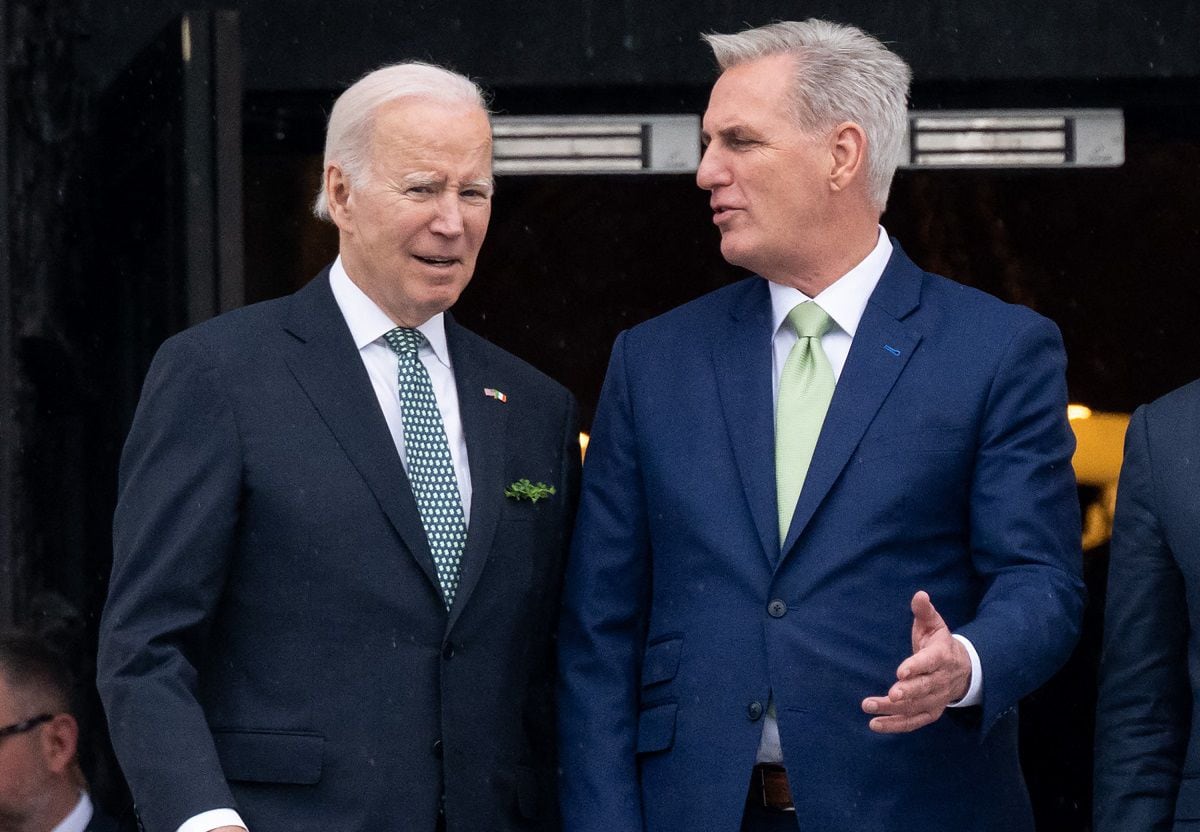
US President Joe Biden and Republican Congressman Kevin McCarthy appeared closer to a deal on Thursday to cut spending and raise the $31.4 trillion public debt ceiling with little time left to avoid the default risk.
A person familiar with the talks said the agreement could specify the total amount the government can spend on discretionary programs such as housing and education, though it would not break it down into individual categories.
The two sides are only $70 billion away from a total figure that would well exceed $1 trillion, according to another source.
The two sides met virtually on Thursday, the White House said.
Biden said the parties continue to disagree on where the cuts are going. “I don’t think the entire burden should fall on working and middle-class Americans.”, he told reporters.
The Treasury Department has warned that the federal government could run out of money to cover all its obligations as soon as June 1, a week from now, but on Thursday it announced plans to sell $119 billion worth of debt that will be will settle on that date, which to some market observers suggests that that date is not a set deadline.
Any deal will have to be approved by the Republican-controlled House of Representatives and the Democratic-controlled Senate. That could be tricky, as some right-wing Republicans and many liberal Democrats have balked at the prospect of a compromise.
“I don’t think everyone is going to be happy at the end of the day. This is how the system works nowsaid McCarthy, who serves as Speaker of the House of Representatives. His office did not respond to a request for comment on the possible deal with Biden.
The House of Representatives adjourned Thursday afternoon to take a week-long break, and the Senate is out of session. Lawmakers have been told to be prepared to vote again if a deal is reached.
General guidelines
The agreement would only set out the general lines of spending, leaving lawmakers to fill in the blanks in the coming weeks and months. The total amount of military spending would be specified, which would be a key sticking point in the talks, according to a source.
According to Democratic lawmaker Mark Takano, Biden has resisted Republican proposals to toughen labor requirements for anti-poverty programs and relax oil and gas drilling rules.
Congressman Kevin Hern, who leads the powerful Republican Studies Committee, told Reuters a deal was likely by Friday afternoon.
A default could rock global financial markets and push the United States into recession.
Credit ratings agency DBRS Morningstar put the United States under review for a possible downgrade on Thursday, echoing similar warnings from Fitch, Moody’s and Scope Ratings. Another agency, S&P Global, downgraded US debt after a similar situation in 2011.
The standoff, which has lasted for months, has spooked Wall Street, weighing on stocks and raising the cost of borrowing for the country.
Treasury Undersecretary Wally Adeyemo said debt ceiling concerns had raised the government’s interest cost by $80 million to date.
Lawmakers regularly need to raise the self-imposed debt limit to cover the cost of spending and tax cuts they have already passed.
House lawmakers will have three days to read any debt ceiling bill before having to vote on it. In the Senate, Republican Mike Lee said he would block a quick vote if he doesn’t like the deal, which could delay action for days.
Source: Reuters
Source: Gestion
Ricardo is a renowned author and journalist, known for his exceptional writing on top-news stories. He currently works as a writer at the 247 News Agency, where he is known for his ability to deliver breaking news and insightful analysis on the most pressing issues of the day.











